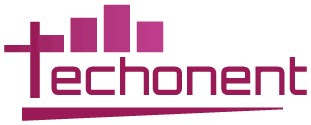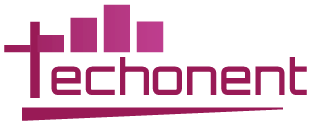
The sales process is a critical aspect of business success, with proposals playing an essential role in securing client engagements. In the digital age, the use of proposal software has become a game-changer for creating, managing, and optimizing sales proposals. By leveraging the right tools, companies can save time, increase accuracy, and enhance the overall quality of their proposals. Below, we'll delve into how proposal software impacts the sales process and why it's a must-have tool for modern businesses aiming for peak efficiency.
Automating the Proposal Creation Process
Automation is one of the most significant advantages offered by proposal software. By automating routine tasks, sales teams can direct their focus toward more strategic activities. For instance, generating a cover letter or assembling a table of contents can be done with the click of a button. This not only saves time but reduces the potential for human error that can arise from manual entries.
Customization tools within proposal software allow for quick adjustments to meet the specific needs of different customers. Rather than a one-size-fits-all approach, businesses can efficiently personalize aspects of their proposals to better address unique client requirements. This level of customization is often achieved through integration with customer relationship management (CRM) systems, which provide relevant client data at the fingertips of sales professionals.
The automation of data entry is another area where proposal software shines. It can pull in relevant data such as pricing, descriptions, and terms and conditions without requiring manual input. Such capabilities eradicate the tedious task of data insertion, reducing the labor-intensive aspects of proposal management.
Enhancing Collaboration and Communication With Proposal Software
In today’s remote work landscape, collaboration has become a cornerstone of business functionality. Proposal software typically has built-in collaboration tools that allow team members to work together in real time, regardless of their location. This significantly reduces the time spent on exchanging emails and files, thereby improving the agility of the sales process.
Communication is integral to the collaborative effort, and proposal software provides a platform for this. Team members can leave comments, track changes, and make instant revisions within the system. Such features ensure that all contributors are aligned on the proposal's content and structure, minimizing misunderstandings and duplication of efforts.
Version control is yet another aspect of collaboration that proposal software streamlines. With automated version tracking, the latest updates are always at hand, and previous iterations can be easily referenced or restored if necessary. This saves the team from the confusion that often arises with multiple document versions.
Tracking and Analyzing Sales Performance With Proposal Tools
Monitoring the effectiveness of sales initiatives is essential for continuous improvement. Proposal software frequently includes analytics features, providing insights into the performance of each proposal. By understanding which proposals are winning and why some may fail, strategic adjustments can be made to future documents.
Tracking the status of proposals is another critical function. Proposal software can alert teams when proposals are opened, read, or commented on by clients. This real-time feedback facilitates timely follow-up actions, which can be crucial in closing deals. Quick responsiveness can make all the difference in a competitive sales environment.
Many proposal tools also offer reporting capabilities that allow for a comprehensive view of the sales pipeline. By generating detailed reports on proposal volume, acceptance rates, and cycle times, management can gauge the overall health and productivity of the sales team. This information is invaluable for making informed decisions and setting realistic sales targets.
Integrating Proposal Software With Other Sales Platforms
The integration of proposal software with other sales platforms is a fundamental contributor to its efficiency. Compatibility with CRM systems ensures that customer data is seamlessly infused into the proposal process. By accessing information like past purchases, communication history, and contact details directly within the system, sales teams can craft highly personalized proposals with ease.
Proposal software also frequently integrates with various productivity tools, such as email, calendar, and project management systems. Such integrations bring together the different facets of the sales process, creating a cohesive workflow. They simplify the task management associated with proposal development, from scheduling follow-ups to delegating responsibilities.
Altogether, proposal software stands as a pivotal element in modernizing the sales process. Its capacity to automate, facilitate collaboration, track performance, and integrate with other systems empowers businesses to operate with greater agility and insight. Overall, companies that adopt proposal software are strategically positioned to outperform their competition through improved efficiency and enhanced client engagement.

